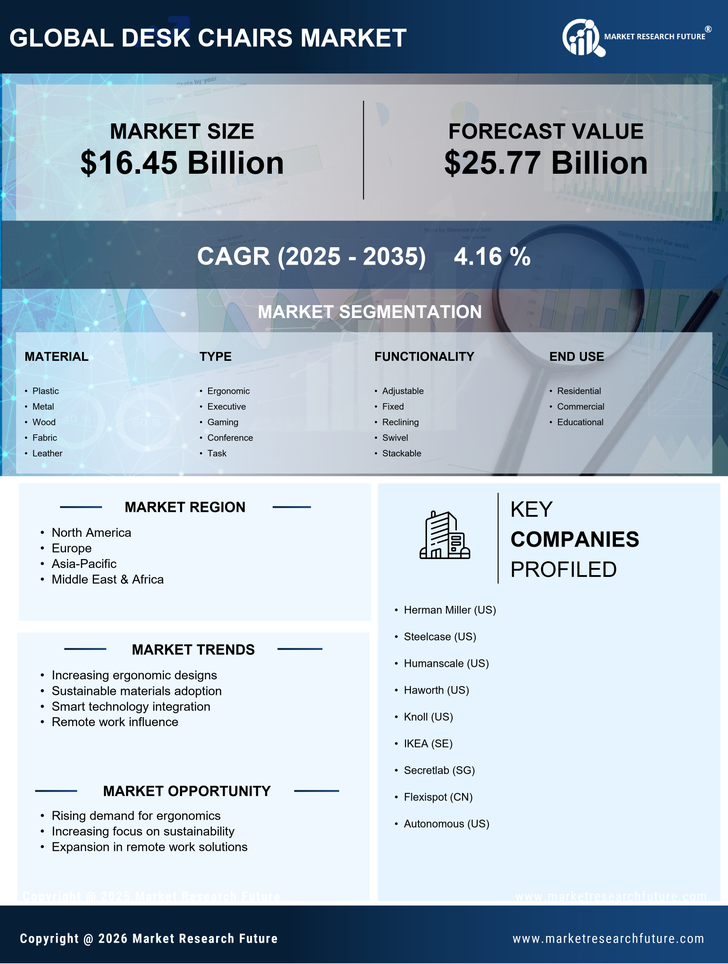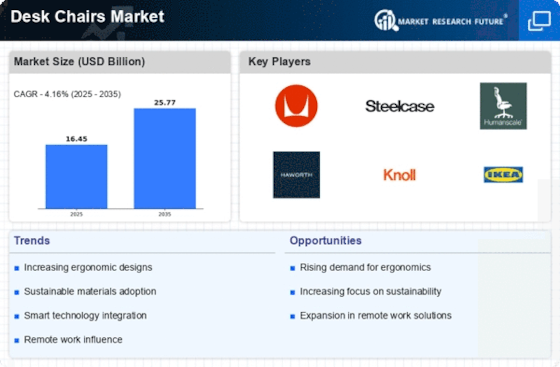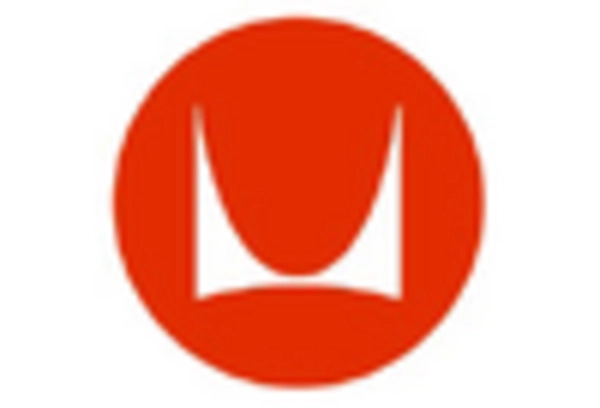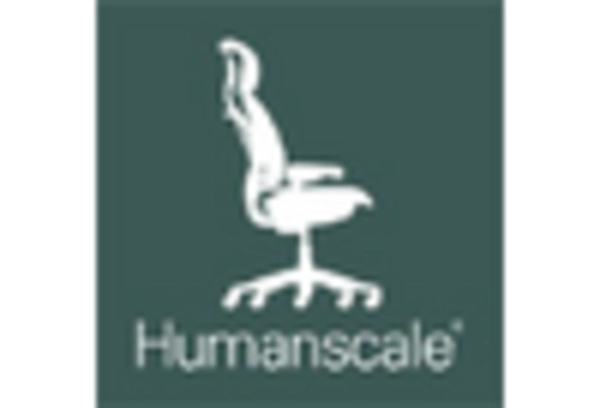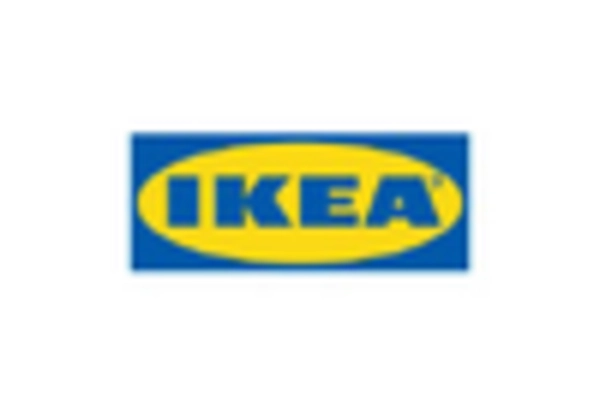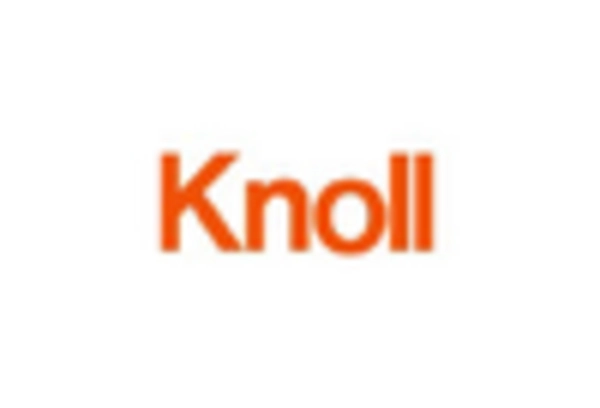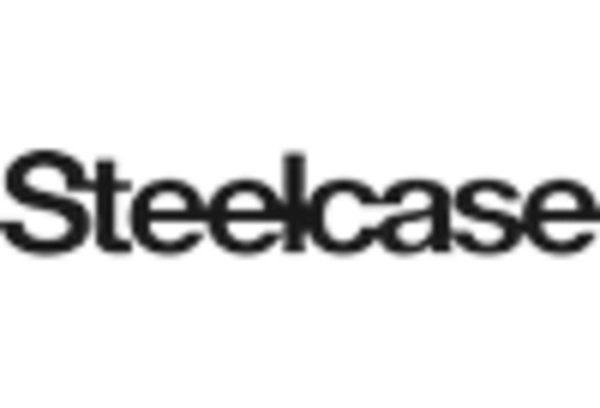North America : Market Leader in Innovation
North America is the largest market for desk chairs, holding approximately 40% of the global share. The region's growth is driven by increasing remote work trends, ergonomic awareness, and a focus on workplace wellness. Regulatory support for ergonomic standards further fuels demand, making it a key player in the market. The U.S. and Canada are the primary contributors, with significant investments in office furniture innovation and sustainability initiatives.
The competitive landscape is robust, featuring key players like Herman Miller, Steelcase, and Humanscale. These companies lead in design and technology, catering to both corporate and home office segments. The presence of established brands ensures a diverse product range, from high-end ergonomic chairs to budget-friendly options. The market is characterized by continuous innovation, with a focus on sustainability and user comfort, positioning North America as a trendsetter in the desk chair industry.
Europe : Sustainable Design Focus
Europe is the second-largest market for desk chairs, accounting for around 30% of the global market share. The region's growth is propelled by a strong emphasis on sustainability, ergonomic design, and health regulations that promote workplace comfort. Countries like Germany and the UK are at the forefront, implementing policies that encourage the use of ergonomic furniture in both corporate and home settings.
Leading countries in this market include Germany, the UK, and France, with a competitive landscape featuring brands like IKEA and Knoll. The European market is characterized by a blend of traditional craftsmanship and modern design, appealing to a wide range of consumers. The presence of innovative companies focusing on eco-friendly materials and production processes enhances the market's appeal, making Europe a hub for sustainable desk chair solutions.
Asia-Pacific : Emerging Market Potential
Asia-Pacific is witnessing rapid growth in the desk chair market, holding approximately 25% of the global share. The region's expansion is driven by increasing urbanization, a growing middle class, and rising awareness of ergonomic furniture. Countries like China and India are leading this growth, supported by government initiatives promoting workplace safety and comfort, which are crucial for the burgeoning tech and service sectors.
China is the largest market in the region, with significant contributions from local manufacturers like Flexispot and Autonomous. The competitive landscape is evolving, with both international and domestic players vying for market share. The demand for affordable yet ergonomic solutions is on the rise, leading to innovations in design and functionality. As remote work becomes more prevalent, the Asia-Pacific region is set to become a key player in The Desk Chairs Market.
Middle East and Africa : Untapped Market Opportunities
The Middle East and Africa region is gradually emerging in the desk chair market, currently holding about 5% of the global share. The growth is driven by increasing investments in infrastructure, a rise in corporate offices, and a growing awareness of ergonomic benefits. Countries like the UAE and South Africa are leading this trend, with government initiatives aimed at improving workplace standards and promoting health and safety regulations.
The competitive landscape is still developing, with a mix of local and international brands entering the market. Key players are beginning to establish a presence, focusing on affordable and ergonomic solutions to cater to the growing demand. As the region continues to urbanize and modernize its office spaces, the desk chair market is expected to see significant growth, presenting opportunities for both established and new entrants.
